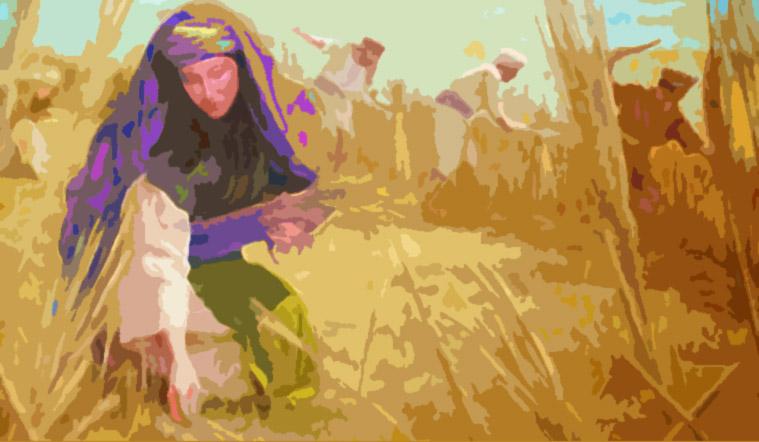The interesting thing about this week’s Torah portion is that it casually goes back and forth between what people today would consider the realm of worship and the realm of the everyday.
First, the parsha talks about the animals people were to sacrifice. These animals couldn’t be blind or bruised or smashed or torn up. God reminds Moses that the offering is to be eaten the same day it’s killed. Then God moves on to talk about taking God’s name in vain, and to honoring the Sabbath.
For six days may work be done, but on the seventh day is a Sabbath,
a proclamation of holiness, any kind of work you are not to do.
Notice the fusing of the down-to-earth subject of work with holiness.
Then we’re back to sacrifices, this time a gift of grain at harvest time, along with a sheep, a bull and two rams. Also a goat.
And then we’re back to the everyday:
Now when you harvest the harvest of your land, you are
not to finish off the edge of your field, or gather the leftovers of your harvest…
Leave them for the poor and the stranger: I am the LORD your God.
To us, God is changing the subject, from harvests to helping the poor. But to the ancient Israelites, God was not. That’s because they didn’t separate what we think of as the sacred and the profane, the ritual and the ordinary. When God spoke to Moses, it was just as important to God to make sure that farmers left enough grain in the corners of their fields for people to gather as it was for God to get sacrifices.
Of course, we know that the Israelites did not always live up to the high standards God set, because we know the prophets were always yelling at them to be better.
Stop bringing meaningless offerings! Your incense disgusts me.
New Moons, Sabbaths and convocations– I cannot bear your worthless assemblies…
Wash and make yourselves clean. Take your evil deeds out of my sight; stop doing wrong.
Learn to do well; seek justice, relieve the oppressed, judge the fatherless, plead for the widow.
– Isaiah 1:13 to 1:17
What is Isaiah saying? That you can’t just make sacrifices and think God is going to be happy. You have to look to the everyday part of his commandments: the commandment to do right by your fellow humans.

Food for Thought
What do you consider the most important part of being an ancient Jew? Is one part more important than others?
